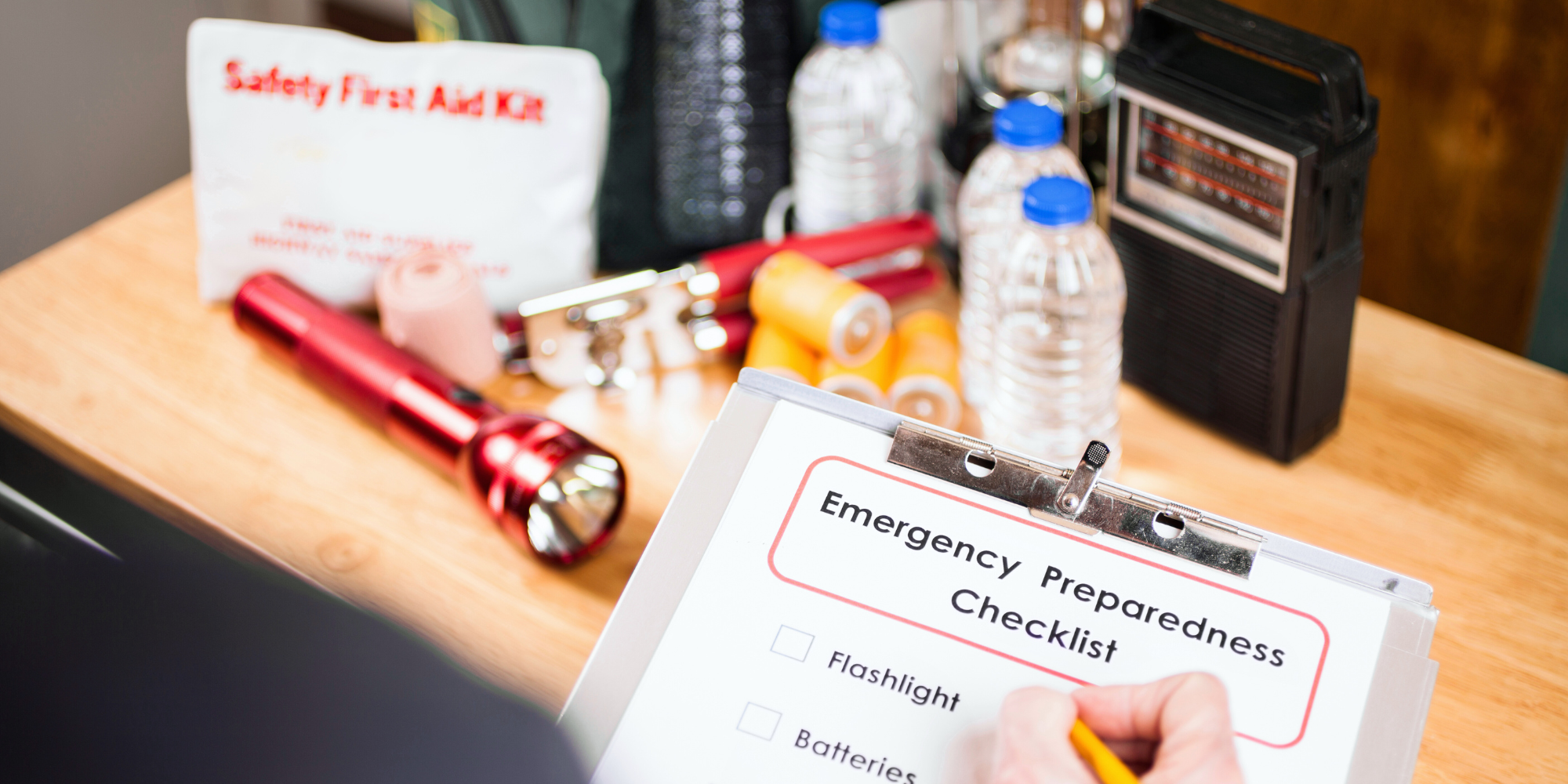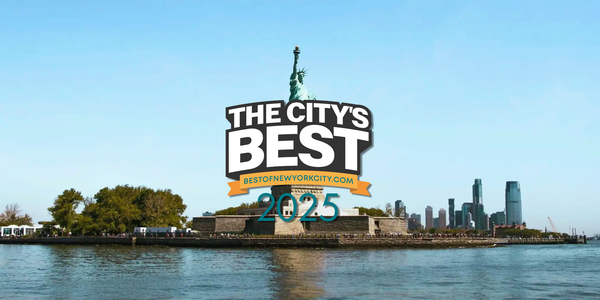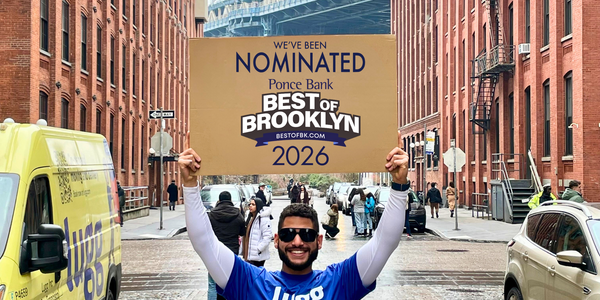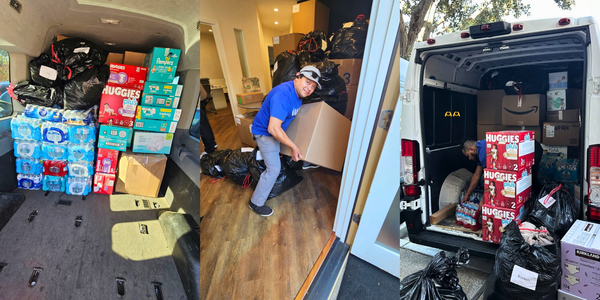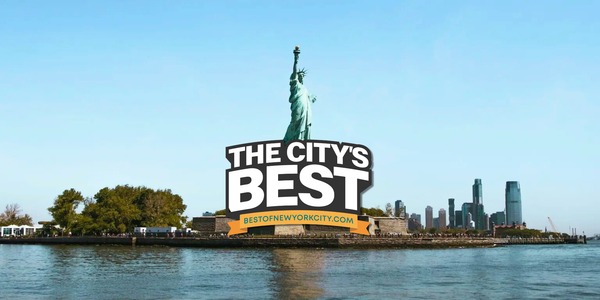When should you start preparing for a hurricane?
Hurricane season runs from June through November in many parts of the U.S.—and if there’s one thing we’ve learned, it’s that early prep makes all the difference.
Whether you’re securing your home, protecting your family, or just trying to avoid long lines at the store, having a plan before the storm hits is essential. From stocking up on supplies to moving patio furniture or helping a loved one prep from afar, having flexible support on hand can make all the difference.
Two Lugger unload furniture from a moving van during a rain storm.
“Lugg was great, they powered through the hurricane weather in traffic, were responsive, and packed my items so well that even in a flatbed truck in the rain, they stayed dry. Very impressed! Very kind too.”
— Kathryn M. in Miami, Florida
What should you buy before a hurricane?
Here’s a basic hurricane supply checklist—covering the essentials you’ll find at stores like Home Depot, Lowe’s, Costco, and Walmart:
- Flashlights and extra batteries
- Bottled water and non-perishable food
- First-aid kit
- Portable chargers and power banks
- Tarps, duct tape, and plastic sheeting
- Gas cans and fuel stabilizer
- Tools, rope, and emergency gear
- Generators and wet/dry vacuums
- Sandbags, plywood, and storm shutters
If it's too big to fit in your car or too heavy to carry alone, you can place an order online for pickup and schedule an on-demand delivery with Lugg—we can be there in as quickly as 30 minutes.
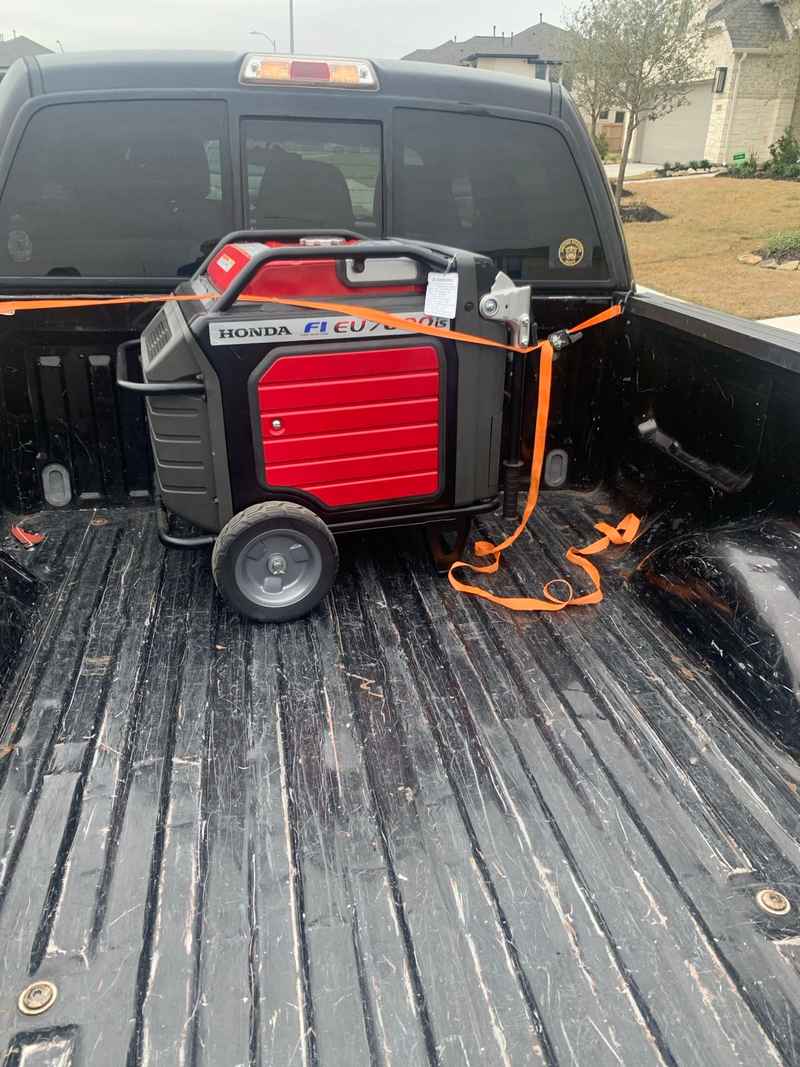
Important items that are commonly forgotten during hurricane prep
Don’t overlook these often-forgotten essentials:
- Pet food and carriers
- Medications and prescription refills
- Manual can opener
- Extra propane or charcoal
- Cash (in case ATMs go down)
- Baby wipes, diapers, or sanitation supplies
- Car charger for your phone
Even smaller items can be tough to track down in a rush. Plan ahead when possible—or schedule a last-minute delivery if needed.
What steps can you take to prepare your home for a hurricane?
Beyond your supply list, don’t forget these key steps. Many can be done well in advance:
- Make copies of important documents (store in waterproof bags)
- Know your evacuation routes
- Take photos of your home for insurance
- Move patio furniture indoors or secure it with straps
- Set up emergency alerts from local news or weather apps (like Accuweather or WeatherBug)
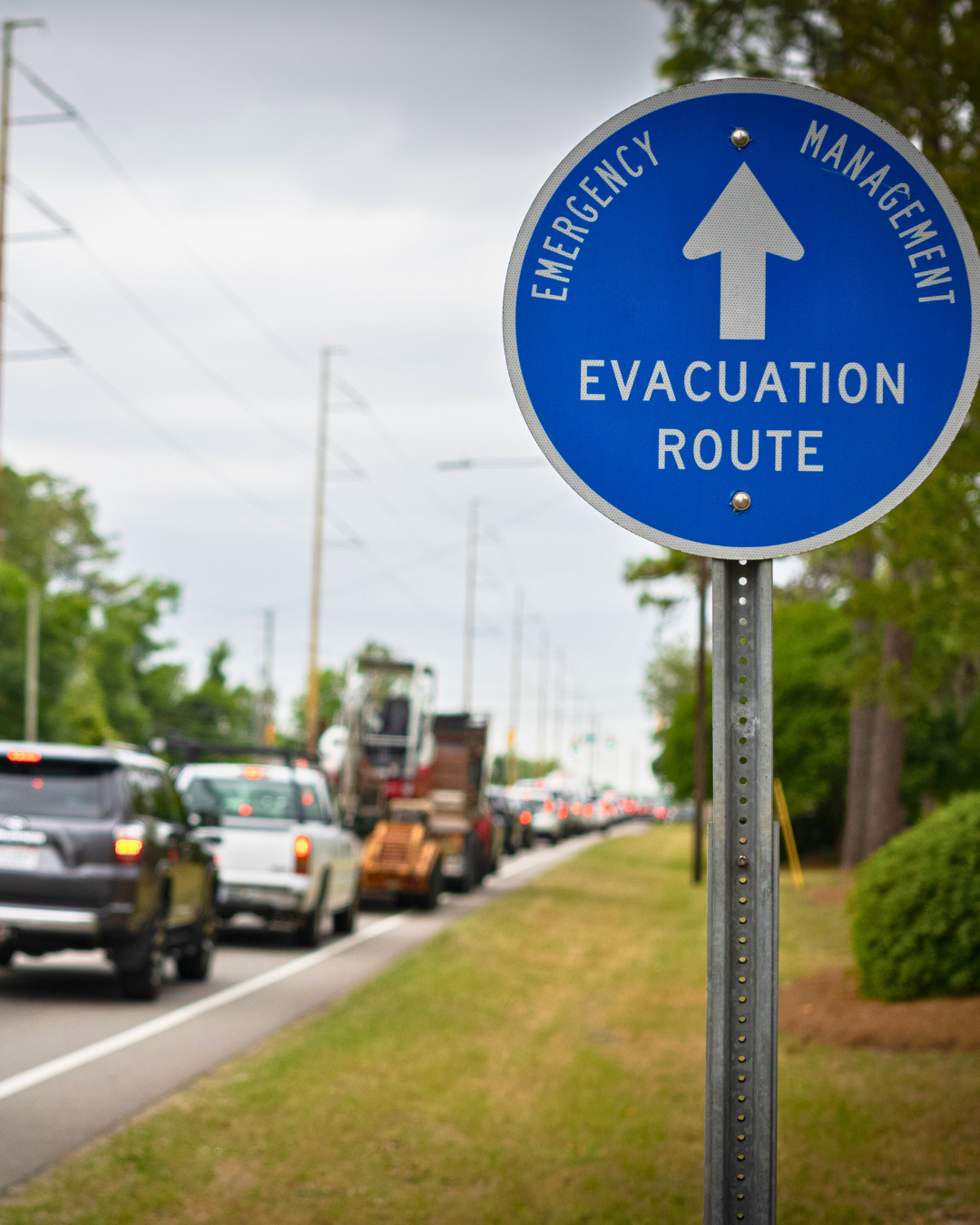
How to stay informed during a hurricane
During a storm, staying connected and up to date is just as important as having supplies on hand. In addition to setting up emergency alerts through FEMA or your weather app, it’s smart to:
- Follow your city or county’s official emergency management page on Facebook., Local agencies often post real-time updates there—including evacuation notices, shelter locations, school closures, and road conditions.
- Bookmark local news sites and sign up for text alerts. If cell service is spotty, SMS-based updates can often still come through.
- Download local apps for your county or city. Many metro areas now have official emergency response apps with maps, alerts, and shelter info.
💡 It’s a good idea to check these pages before and after a storm, too. They’re often the first place local updates are posted.
What can you do after a hurricane hits?
Recovery takes time, but having support for cleanup, restocking, and helping others can make it a little easier.
After the storm:
- Check on your home and document any damage
- Look in on neighbors, elderly residents, and family members
- Clear away debris or fallen branches (safely)
- Coordinate insurance photos and claim documentation
- Begin restocking supplies as soon as stores reopen
If you don't have a truck, can't handle the heavy lifting, or just need a hand, Lugg can help:
- Deliver a wet/dry vacuum from Lowe’s or Home Depot
- Haul out damaged mattresses, couches, or rugs
- Replace storm-damaged items with new ones from IKEA, Target, or Mattress Firm
- Drop off donation loads or pick up restoration tools and supplies
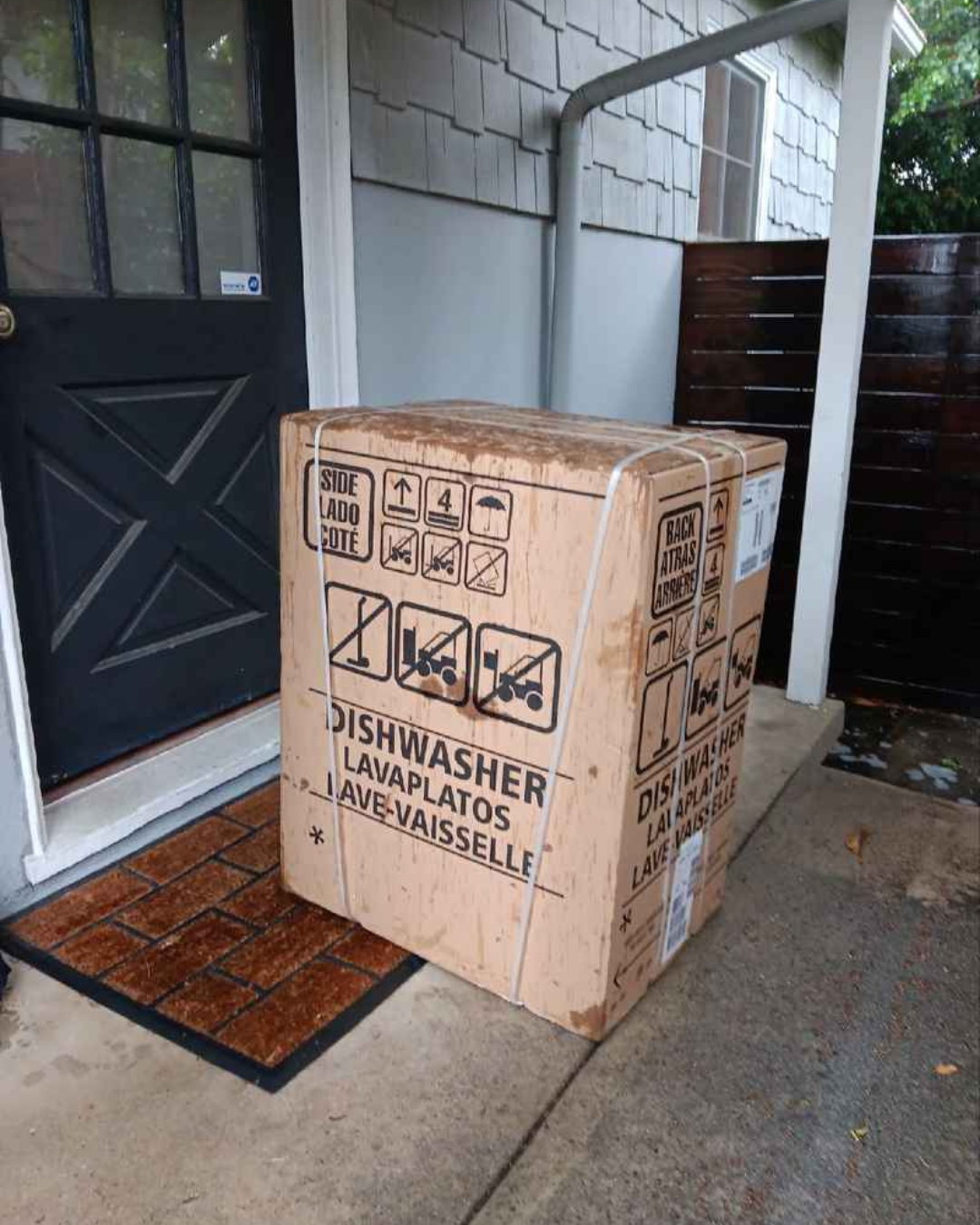
FAQ: Hurricane supplies, on-demand delivery, and how to prepare
Q: When is hurricane season in the U.S?
A: Hurricane season runs from June through November in many parts of the United States.
Q: When should you start preparing for a hurricane?
A: Experts recommend preparing at least 3–5 days before landfall, especially if you're in a coastal or flood-prone area. Supplies often sell out fast, so early planning is key.
Q: What are the most important items to have before a hurricane?
A: Water, non-perishable food, flashlights, chargers, first-aid supplies, and a way to power devices (like a generator or battery pack). Don’t forget pet food, medications, and important documents.
Q: What’s the fastest way to get hurricane supplies delivered?
A: Order online for in-store pickup (Home Depot, Lowe’s, Costco) and book Lugg for same-day delivery. We provide on-demand delivery and can arrive in as little as 30 minutes.
Q: Can I send supplies to someone else?
A: Yes! You can book Lugg to deliver to a friend, family member, or neighbor—just enter their address as the destination. You can also add them as an additional contact so they'll receive ETA updates every step of the way.
Q: What should I do if I have to evacuate?
A: Follow your local emergency management guidance. Bring essentials like ID, medications, chargers, and a go-bag with food and clothing. If you have time, secure your home and move valuables to higher ground.
Q: What if I only need help moving a few items?
A: No problem. We handle anything from single items to full loads.
Q: What should I do after a hurricane hits?
A: Stay alert for safety updates. Once it's safe, check your home for damage, document everything for insurance, and look in on neighbors. If you need to haul out damaged items or restock essentials, Lugg can help with delivery and disposal.
Q: Is Lugg available in my city?
A: We operate in most major metro areas across the U.S., including hurricane-prone regions like Miami, Houston, Atlanta, Dallas, San Antonio, Fort Lauderdale, Austin, and more. View the full list of cities we're in at lugg.com/cities.
Helpful Emergency Resources
- FEMA Ready.gov Hurricane Guide
- Miami-Dade County Emergency Management
- Houston Office of Emergency Management


